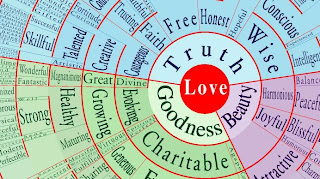 What must the wise men have thought as day after day, their journey continued with no end in sight? What must their families have thought when their loved ones decided to set out on the journey in the first place? Who in his right mind would leave home to travel by faith, following not a map, not a handwritten message, but a shimmering pinpoint of light in the night sky?
What must the wise men have thought as day after day, their journey continued with no end in sight? What must their families have thought when their loved ones decided to set out on the journey in the first place? Who in his right mind would leave home to travel by faith, following not a map, not a handwritten message, but a shimmering pinpoint of light in the night sky?The magi traveled such a long distance to find the king of the Jews, initially going to Jerusalem--where one would expect to find such a king.
Scripture says, "magi from the east arrived in Jerusalem, saying, 'Where is He who has been born King of the Jews? For we saw His star in the east and have come to worship Him'" (Matt. 2:1-2). They weren't looking for Herod--self proclaimed king of the Jews. No, the one "born king" was the one they sought. But in Jerusalem, they came up empty.
MacArthur says the verb tense "saying" implies the magi asked not once, not twice, but repeatedly, continuously as they walked around the city, "questioning everyone they met."*
In Jerusalem, no one knew of such a king's birth. But just the idea of a "born king" set the city on edge: "When Herod the king heard this, he was troubled, and all Jerusalem with him" (v. 3). One definition for "troubled" in Strong's is "to strike one's spirit with fear and dread." That's how I imagine Herod felt.
King Herod has made me scratch my head a bit this Christmas season. He's the one with the legacy of sending soldiers to murder all the little boys in Bethlehem. With a heart full of murderous intentions all along, why trust foreigners to bring him the intel? Or why not send his own trusted envoy to accompany the magi? For someone wanting to squash the competition, it makes sense. But for reasons only known to God, Herod sat and waited until he realized he'd been duped.
Meanwhile, the wise men kept moving, this time directed not by a star, but by Herod and the chief priests to Bethlehem: "and the star, which they had seen in the east, went on before them until it came and stood over the place where the Child was. When they saw the star, they rejoiced exceedingly with great joy" (v. 9-10).
This isn't the way I remember my Christmas story. Why rejoice at the star? Hadn't they been following it across the desert for miles and miles and miles? By now, wasn't it as familiar as their camel's gait?
I don't think so. Their "exceedingly" joyful rejoicing seems to imply that the star had, at some point, disappeared and now had returned. If that is the case, then what faith must the magi have had to continue on their journey with no visible light as their guide?
And although Scripture doesn't say it, what exceedingly rejoicing joy, what unspeakable joy the magi must have felt to see their journey of faith rewarded with sight of Immanuel, God with Us.
This upcoming year, God may ask you and me to set out across the desert, following His light. At some point, the visible guiding light may disappear and we may question our actions. We may question if God is really even there, if He cares at all.
Keep walking. Keep pursuing Him with your everything. And at the end of the journey, we will see His light face to face.
*The MacArthur Bible Commentary, p. 1121.























